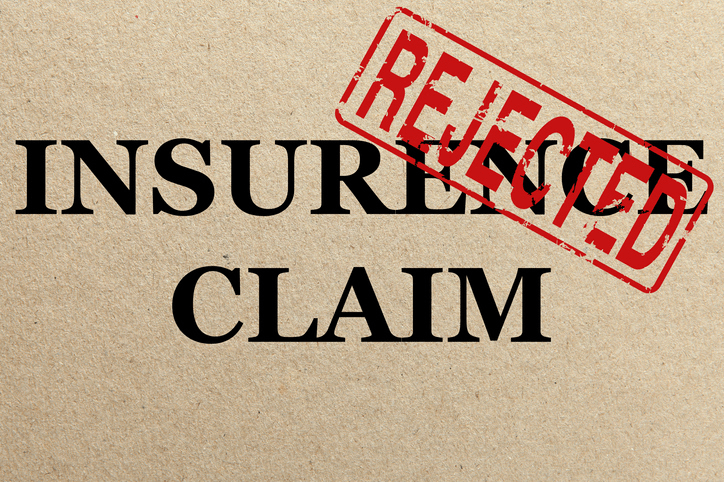Receiving a claim denial from your insurance company can be frustrating—especially when you’re dealing with medical bills, property damage, or any other stressful situation that insurance was meant to protect you from. But here’s the good news: you have the right to appeal.
Whether it’s health, auto, home, or life insurance, understanding how to challenge a denied claim is crucial. This comprehensive guide will walk you through why claims are denied, how to appeal, and what you can do to strengthen your case.
Detailed Analysis
❗ Common Reasons Insurance Claim Is Denied
Before launching an appeal, it’s important to know why your claim was denied. Here are the most frequent reasons across various types of insurance:
-
Incomplete or incorrect information: Missing documents or errors in your claim form.
-
Policy exclusions: The issue you’re claiming may not be covered under your specific policy.
-
Lapsed coverage: Missed premium payments may result in a policy lapse.
-
Pre-existing conditions (health insurance): Sometimes insurers reject claims related to known issues not covered.
-
Procedural errors: Services without pre-authorization or out-of-network care may lead to rejection.
-
Missed deadlines: Not filing claims or appeals on time.
🧾 Step-by-Step: How to Appeal a Denied Insurance Claim
1. Review the Denial Letter Carefully
Every denial must be accompanied by an Explanation of Benefits (EOB) or a denial notice that includes:
-
The reason for denial
-
The policy clause they’re citing
-
How to appeal
-
The timeframe to submit an appeal
🧠 Tip: Highlight key terms, reasons, and deadlines mentioned in the letter.
2. Contact Your Insurance Company
Call or email the insurance provider’s customer service line and ask for a detailed explanation of the denial. Take notes during this interaction and record:
-
Agent name and ID
-
Call reference number
-
Exact reason for denial
📌 This initial step can sometimes lead to a quick resolution, especially if it’s a clerical error.
3. Gather All Supporting Documentation
Build a file that includes:
-
A copy of the original claim
-
The denial letter
-
Relevant sections of your policy
-
Invoices, receipts, or medical records
-
Letters from doctors, mechanics, or specialists (depending on the claim type)
🔍 For health claims, ask your doctor to write a letter explaining why the service was medically necessary.
4. Write a Formal Appeal Letter
Your appeal letter should include:
-
Your policy number
-
Date of service or incident
-
A clear explanation of why you’re appealing
-
Any documentation that supports your case
Example Format:
Dear [Insurance Company Name],
I am writing to formally appeal the denial of my claim #[Claim Number], regarding [Brief Description].
[Explain your situation and attach evidence.]
I respectfully request a full review of my claim. Please find enclosed the required documents.
Sincerely,
[Your Name]
✅ Be polite, factual, and concise.
5. Submit the Appeal
You can often submit appeals:
-
Online through the insurer’s portal
-
By mail (Certified Mail is recommended)
-
By fax (with confirmation sheet)
Double-check your insurer’s appeal submission process and retain all proof of submission.
6. Follow Up and Track Progress
Stay proactive! If you don’t receive confirmation of receipt within a week, call to confirm they’ve received your appeal. Some appeals take 30–60 days to resolve.
Historical Context: Your Legal Rights
Thanks to federal laws and healthcare reform, consumers have more power than ever to challenge denied claims—especially for health insurance.
🏛️ Patient Protection and Affordable Care Act (ACA)
Under the ACA:
-
Every health plan must include an internal and external appeals process.
-
You must receive a response to an internal appeal within:
-
30 days for prior authorization denials
-
60 days for post-service denials
-
If your internal appeal fails, you can request an external review by an independent third party. Learn more here:
🔗 HealthCare.gov Appeals Information
Fan and Media Reactions
According to a 2023 Kaiser Family Foundation report, only 0.2% of denied claims are appealed—even though nearly 40% of those appeals are successful.
This indicates that many consumers don’t know they can challenge decisions or simply give up too soon.
Reddit forums such as r/Insurance and r/HealthInsurance show dozens of real-life examples where users successfully overturned denials by appealing properly and persistently.
Examples with Visuals
Imagine this scenario:
🧍Case Study: Health Insurance Denial
-
Jane had surgery recommended by her physician.
-
Her claim was denied due to “non-essential procedure.”
-
She appealed with:
-
A physician’s letter detailing medical necessity
-
A copy of clinical guidelines
-
Prior communication with the insurer
-
Result: Reversal of denial and full coverage of procedure within 45 days.
🧍Case Study: Auto Insurance Denial
-
Marcus filed a claim after a minor collision.
-
The insurer claimed the incident was outside policy coverage hours.
-
Marcus provided:
-
GPS data
-
Traffic camera footage
-
Proof of timely premium payments
-
Result: Claim approved after an internal review.
Also Check:
- Life Insurance Policy Types: Term vs. Whole Life Insurance Explained
- Comprehensive Maternity Insurance Policies in USA 2025
- Top 5 Best Insurance Companies for High-Risk Drivers
- Top Term Insurance Plans In India with Okbima
- Personal Accident Insurance with Okbima: A Comprehensive Guide
Conclusion on Denied Insurance Claim
Insurance is meant to be a safety net, but a denial doesn’t have to be the end of the road. By staying informed, organized, and assertive, you can often overturn a denial and get the coverage you deserve.
Don’t let frustration keep you from advocating for your rights. Take the time to read your policy, collect the necessary evidence, and use every appeal channel available.
If you’re unsure about how to proceed, don’t hesitate to consult an insurance broker, financial advisor, or legal expert familiar with your claim type.
